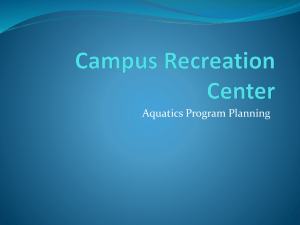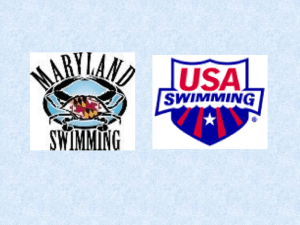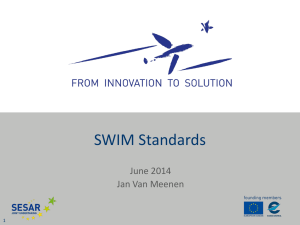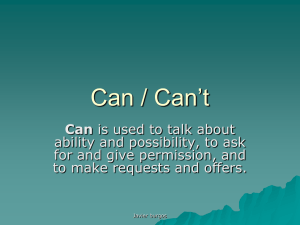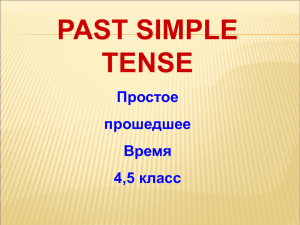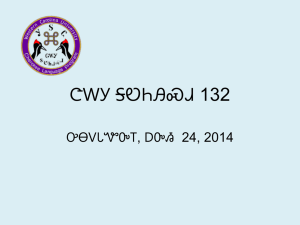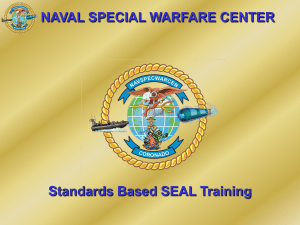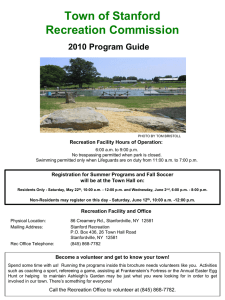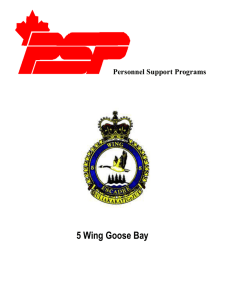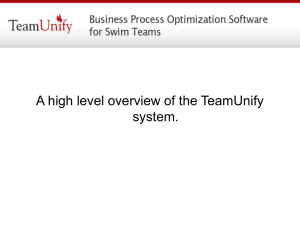Service development for newbies and experts
advertisement
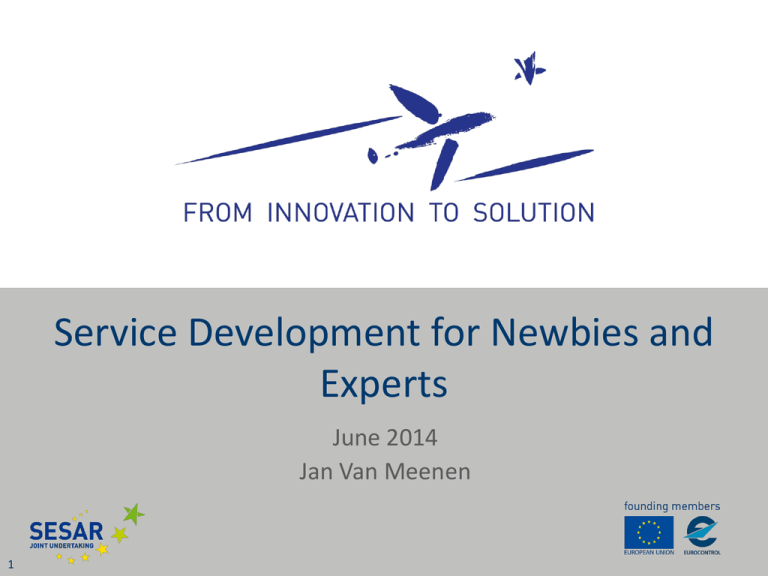
Service Development for Newbies and Experts June 2014 Jan Van Meenen 1 Overview: a tutorial Tutorial approach – – – – Extensive instructions Hands-on learning SWIM technology SWIM data exchange models Overview: illustration Illustration – Not authoritative – Only 1 way of doing things amongst many – Only a subset of SESAR SWIM is in scope Overview: motivation • Lower the threshold for active involvement in SWIM. • No or not enough expertise in the world of Service Development. • Some tough obstacles Key elements • Principles • Quick start • Platforms • Models • End to end • Beyond Principles Principles • SWIM Profiles – Aligned with current specifications in the SWIM Profiles – At this time limited to Yellow Profile "Core" 2.1 • Physical Data Exchange Models – Aligned with current versions of XMs, i.e. • AIXM 5.1 • IWXXM 1.0 (September 2013) • FIXM 2.0 (August 2013) and FIXM 3.0 (RTM probably August 2014) Principles • Small footprint: understandable and accessible – Allows autonomous experimentation – Most basic needs to have a service instance up and running with minimal maintenance effort and minimal cost – Not for sophisticated deployment options Quick start • Quick start: – Allows for a quick look & feel – Initial discovery before going more in depth in the tutorial • Components needed for such quick start, already built and provided: – Certificates – Program executables and configuration files Service instances & platforms • Service instances – Effectively running and accessible via Internet provided you have the necessary credentials. – Built exactly and faithfully in line with the tutorial • Platforms – Co-located or not – Lab Models, End to End and Beyond • Models – Quickly encapsulate your own particular business function and/or information into a SWIM service • Full run through of a tutorial – Requires download and installation of some development tools which are for free – A complete run through a tutorial for a service can be completed between 2 and 4 hours of elapsed time. • Beyond the tutorial – Possibility for improving, enhancing, expanding and/or changing the content of the tutorials to extend your own discovery process Motivation: lower the threshold for active involvement in SWIM • There are a number of reasons/doubts why an ATM Stakeholder could withhold active participation in SWIM such as: – Is it difficult? – Is it time consuming? – Is it expensive? • The tutorial targets: – Self-paced gradual deepening of the understanding of SWIM – Increase the confidence for autonomy as a service provider and/or service consumer. – SWIM is usable now – SWIM can provide a quick return on investment Motivation: no or not enough expertise on Service Development • Offer services yourself in SWIM Master Class 2014: – IT expertise is available – But not or hardly familiar with the service approach, the technologies and/or the physical data models that characterise SWIM. • Use tutorial: – Re-usable models – 3 working examples of application of the models – If applicable for you, shortcut your research effort and reduce elapsed time significantly Motivation: Tough obstacles • Standards: – Thorough and strict selection process in SESAR mandates the standards – But, unavoidably tough obstacles • Share experience: – Solutions have been searched for, found and integrated in tutorials – Remember: illustration and not authoritative Planning • Now – 3 services are available now: • Conversion of raw METAR to IWXXM 1.0 format • Conversion of ICAO ATS FPL to FIXM 2.0 format • Conversion of AIXM 4.5 to AIXM 5.1 format • Living subject – The tutorial material is not perfect and is not complete, the standards will evolve, the profiles may evolve => a living thing • Permanency – The tutorials and service instances will persist and continue to evolve following the end of the SWIM Master Class 2014. • Short term wish-list – Implementations of the 3 services using completely different development tools and frameworks, different execution frameworks and different hosting platforms. – A WFS based service offering AIXM 5.1 data Who? • Eurocontrol – Eurocontrol makes Yellow Profile related tutorials available at the time of the SWIM Master Class 2014 Launch Event. The tutorials are usable in- and outside the SWIM Master Class 2014 context. • SWIM MC Participants – Feedback from SWIM MC 2014 participants is welcome. – For the entire duration of the SWIM Master Class 2014 comments can be submitted and will be assessed. There is no guarantee that all comments can be taken into account. With the available resources, priority will be given on a best effort base to: • corrections of bugs • correction of errors in the documentation • completion of the documentation • support on the use of a tutorial – Contact: swim@sesarju.eu Concretely • Part of Jumpstart – Tutorials made available by Eurocontrol are part of Jumpstart. – A single Jumpstart license agreement = access to all of the elements in Jumpstart published during the SWIM Master Class 2014. – Most important message: • discovery and demonstration for SWIM only. • Disallowed for any operational use. – It is for free. • Structure of the Jumpstart components – JS-Desktop Client (zip) – JS-ATM Services Tutorials (zip) – JS-Infrastructure Services Tutorials (zip) – JS-Service Instances: • Eurocontrol proposed contribution to practical SWIM Global Demonstrations • No constraints: can be combined with any other demonstration service instances Concretely • Distribution – Distinct versions and notification of updates. – Currently via email. More channels to be determined. • Credentials for the 3 service instances – Certificates issued for NM B2B (OPS, PREOPS and/or NMVP) – Certificates issued by a PKI that is part of the JSService Instances. • Jumpstart license agreement => entitled • Issuance process: best effort base, but is expected to be very swift Concretely At work • The service instances of the tutorial that are running effectively, are demonstrated on a stand in the lobby
